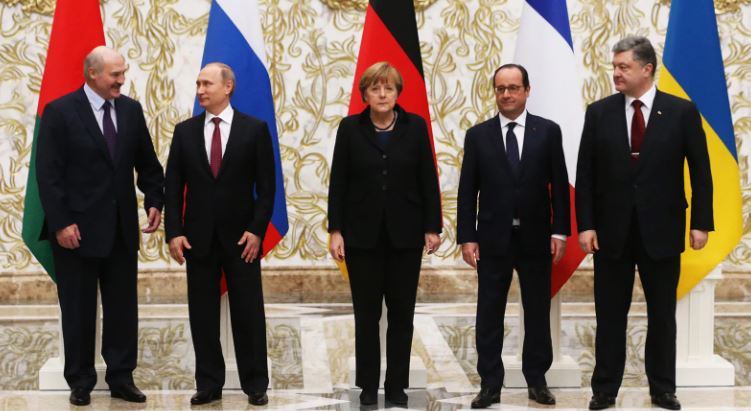Moscow: Russian President Vladimir Putin has offered a surprising explanation for why Russia is becoming increasingly isolated on the global stage. Rather than acknowledging the role of Russia’s ongoing conflict with Ukraine, Putin has instead pointed to “hostile elites” in other countries as the main reason for the growing tensions. Photo Courtesy: HuffPost
During a visit to a school on Monday, Putin stated, “We do not reject anything: we don’t have hostile languages, we don’t even have hostile countries. We have hostile elites in some countries that have been fighting against Russia for centuries because they think it is too big.” This remark, shared by Russian state media, frames Russia as a victim of envy and fear due to its size and power.
Putin went on to suggest that these elites are attempting to slow down Russia’s development, portraying the country as being under attack by external forces, rather than facing internal or policy-related issues.
Kremlin spokesperson Dmitry Peskov reinforced this narrative over the weekend. In an interview with a Russian state-owned channel, Peskov emphasized that Putin is careful in his remarks about other national leaders, stating, “President Putin is always extremely careful in his remarks about his counterparts. He never resorts to rudeness, let alone boorishness, regarding other national leaders.” This comment was made in response to U.S. President Joe Biden’s 2021 remark calling Putin a “killer.”
Peskov suggested that Biden’s characterization of Putin was an attempt to create personal tension between the two leaders, a notion that Putin reportedly dismisses. According to Peskov, “Putin does not take part in it,” portraying the Russian president as calm and composed in the face of such comments.
Putin also criticized Western nations and their treatment of Russian journalists, accusing them of censorship. He claimed that Western countries, which often promote themselves as defenders of free speech, are actually censoring Russian media and labelling them as “Kremlin propagandists.” Putin asserted, “In Russia, the mass media are free. This is solidly guaranteed by our constitution.”

However, this claim contrasts with the reality in Russia, where media freedoms have significantly declined during Putin’s more than two decades in power. Independent media outlets have been severely restricted, especially following the start of the conflict in Ukraine, leaving little room for opposing viewpoints within the country.
In another statement, Putin speculated about Ukraine’s motivations for military actions in the Russian region of Kursk, suggesting that the Ukrainian government is acting out of desperation to stay in power. “If military operations come to an end, the Ukrainian authorities will have to lift martial law and hold a presidential election right after martial law is lifted,” he said, seemingly ignoring the ongoing conflict and Russia’s occupation of a significant portion of Ukrainian territory.
As Putin continues to present his narrative, the global community remains focused on the broader consequences of Russia’s actions, particularly its continued aggression in Ukraine. The Kremlin’s efforts to shape public perception about Russia’s place in the world raise questions about the country’s future direction and its role on the international stage.